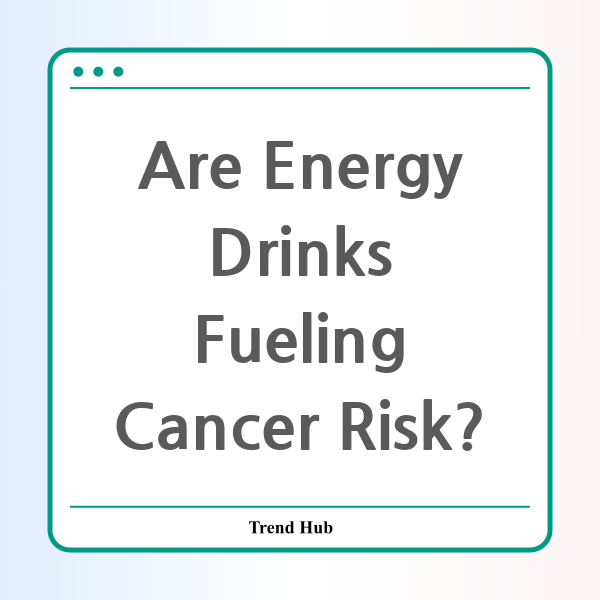* This website participates in the Amazon Affiliate Program and earns from qualifying purchases.

Could your favorite energy drink be doing more harm than good? Recent studies have raised significant concerns about the ingredient taurine, commonly found in energy drinks, being linked to blood cancer, particularly leukemia. If you’ve been reaching for that can of Red Bull or Monster to boost your energy, you might want to reconsider.
Taurine is an amino acid prevalent in various energy drinks due to its supposed benefits in balancing fluids and minerals in the body. However, a newfound link to the progression of leukemia has researchers sounding the alarm on these popular beverages. In a groundbreaking study published by Nature, scientists discovered that taurine significantly accelerates disease progression in blood cancer, particularly in the context of leukemia.
According to research from the University of Rochester, cancer cells thrive on taurine, as it triggers a process known as glycolysis – a metabolic pathway that breaks down glucose for energy. This process not only fuels the cancer cells but may also promote their development, suggesting that energy drinks could inadvertently contribute to the growth of malignant cells.
To add complexity to this issue, taurine is often presented as a potential supplement for chemotherapy patients, aiming to mitigate some of the toxicities associated with treatments. While taurine has shown promise in combatting the adverse side effects of chemotherapy, its role in cancer progression calls for a deeper examination. The duality of taurine's effects illustrates the need for caution; researchers advise leukemia patients to carefully consider taurine intake, particularly from energy drinks.
A more in-depth look into the mechanisms reveals that taurine may act as a key regulator of myeloid malignancies, implicating it as a significant player in cancer biology. New findings suggest that signals from the bone marrow environment engage leukemia stem cells, intensifying their growth and leading to a more aggressive disease course. This discovery highlights the pressing need for further studies to unravel the complex interaction between taurine and cancerous cells.
Moreover, the rising prevalence of energy drink consumption among younger populations amplifies the urgency of addressing this potential health risk. Energy drinks are marketed for improved concentration and performance, yet the long-term consequences of regular consumption remain unclear.
While taurine is acknowledged for its benefits in some contexts, its presence in energy drinks should not be overlooked. If a seemingly harmless ingredient like taurine can contribute to the progression of a serious illness like leukemia, it raises critical questions about the safety of these popular beverages. Are energy drinks truly worth the risk, or could they be inadvertently fueling the flames of cancer?
In conclusion, the emerging research linking taurine to blood cancer proliferation serves as a potent reminder to evaluate the contents of our diets closely. As consumers, awareness is paramount. It's essential to stay informed and make choices that prioritize our health and well-being. If you or someone you know regularly consumes energy drinks, consider reassessing this habit in light of these findings.
* This website participates in the Amazon Affiliate Program and earns from qualifying purchases.